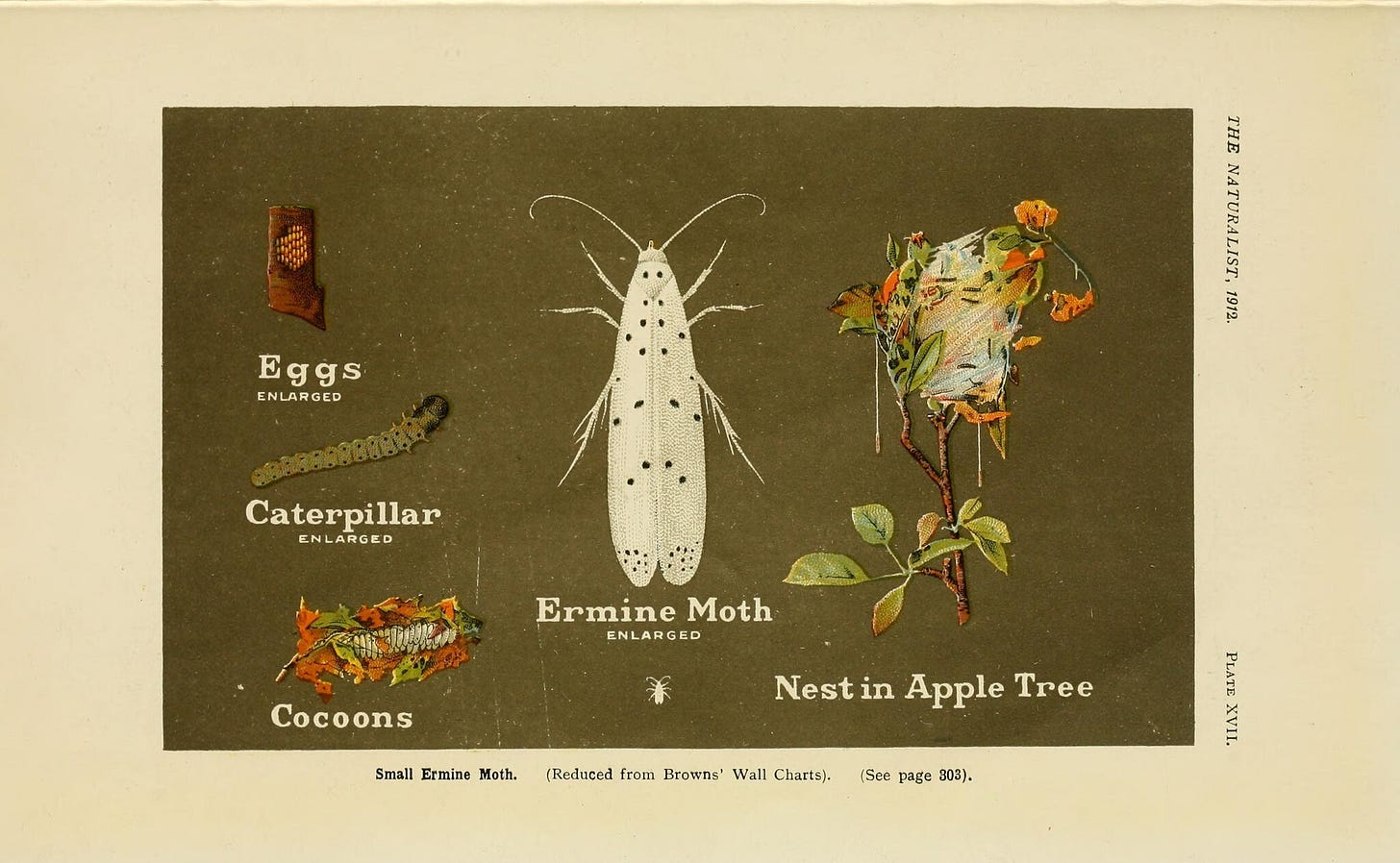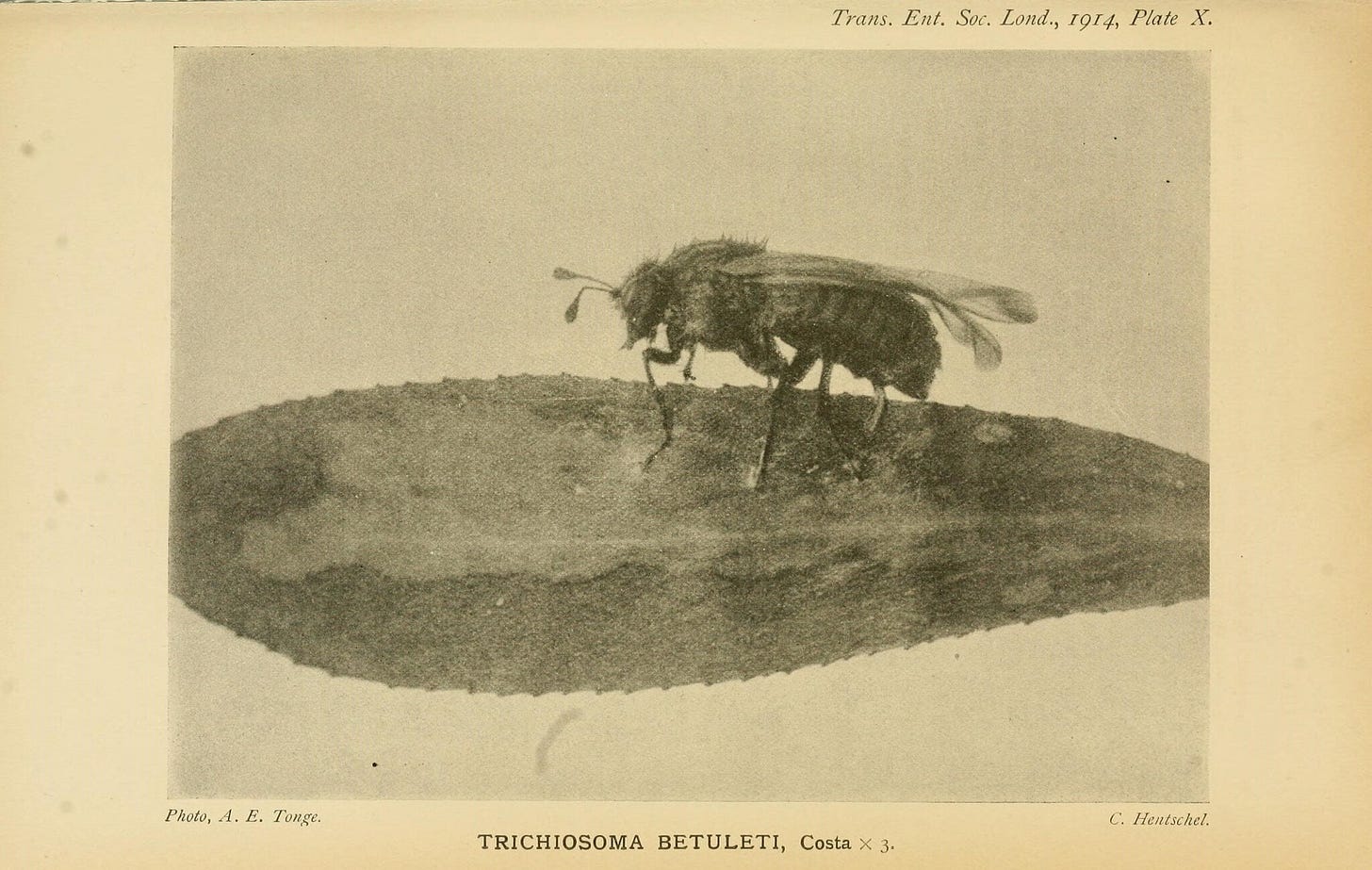Murder against which none can defend himself
A sort of heightened hopelessness jockeying with brief flashes of optimism
There’s a trope in horror films that I’m sure has a snappy name I’m unaware of but I tend to think of as an “existential trap door.” Often in the last scene of the film but not exclusively there comes a moment when the true scope of the horror the characters have been fighting is revealed. (This is distinct from the final jump in which the monster explodes from the shadows for one more scare.)
Usually at this point the immediate threat has been neutralized and there’s a sense of relief and calm for the survivors. Then the focus shifts and we realize what’s transpired wasn’t just a random and unfortunate encounter with evil it was merely a tiny piece of the villains’ prolific history of malevolence.
I’m thinking mostly now of the end of From Dusk till Dawn — which being a Robert Rodriguez and Quentin Tarantino film was of course drenched in these sorts of genre references and subversions — when George Clooney and Juliette Lewis’ characters emerge bloody and beaten but nonetheless alive from their fight with the vampires. As they stumble into the light the camera pulls up and back around to the otherside of the bar which we now see is perched above an ancient temple looming over a pit into which hundreds or thousands of other trucks and cars have been dumped.
(Incidentally always read the comments)
The point is it suggests historic and routine suffering on a massive scale. Enjoy your breather it says. But this has been going on and this will most likely keep going on long after you think you’re safe. It cannot be defeated. It’s all murder all the way down.
Not sure why I was thinking about that this morning in bed.







Maybe this is related but I saw this bit from Condition of the Working Class in England written by Friedrich Engels in 1845 shared recently. Perhaps it sounds familiar.
When one individual inflicts bodily injury upon another such that death results, we call the deed manslaughter; when the assailant knew in advance that the injury would be fatal, we call his deed murder. But when society places hundreds of proletarians in such a position that they inevitably meet a too early and an unnatural death, one which is quite as much a death by violence as that by the sword or bullet; when it deprives thousands of the necessaries of life, places them under conditions in which they cannot live – forces them, through the strong arm of the law, to remain in such conditions until that death ensues which is the inevitable consequence – knows that these thousands of victims must perish, and yet permits these conditions to remain, its deed is murder just as surely as the deed of the single individual; disguised, malicious murder, murder against which none can defend himself, which does not seem what it is, because no man sees the murderer, because the death of the victim seems a natural one, since the offence is more one of omission than of commission. But murder it remains. I have now to prove that society in England daily and hourly commits what the working-men's organs, with perfect correctness, characterise as social murder, that it has placed the workers under conditions in which they can neither retain health nor live long; that it undermines the vital force of these workers gradually, little by little, and so hurries them to the grave before their time. I have further to prove that society knows how injurious such conditions are to the health and the life of the workers, and yet does nothing to improve these conditions. That it knows the consequences of its deeds; that its act is, therefore, not mere manslaughter, but murder…
This is essentially what I was getting at in this piece in here from the other day.
Almost every single utterance from a Republican (and plenty from Democrats) about their intended policy is an attempt to set violence against real people into motion by someone else's hands which is ok for some reason. Arguing that we can’t afford to send out $2,000 checks a month is in fact calling for people to die it’s just said with the cover of the savvy politics insider.
Technically denying life saving and desperately needed money to people during a pandemic isn't killing them in the same way that shooting them would be it's just inserting the ball into the Rube Goldberg machine of pain that provides an exonerating and distancing sleight of hand between cause and effect. Invoking “the deficit” is just saying “let them die” in more acceptable terms.
Speaking of that whole thing with GameStop and Robinhood and the stock market I sent this explainer about what was happening to paid subscribers the other day (then made it open for everyone for a bit but now it’s behind the paywall again). I’m told my interview with economic journalist Doug Henwood was really helpful to a lot of people for figuring out uh… what the stock market is and specifically what shorting is and how a group of Redditors (with various overlapping motives) were trying to stick it to rich hedge fund pricks.
Here’s a bit of it.
Am I dumb or is this really hard to understand?
I've been following this for so long it seems like second nature to me, but I think most people find it really obscure. I think people really find the idea of short selling extremely obscure. There’s an old saying attributed to the 19th century financier Daniel Drew: "He who sells what isn't his'n, must buy it back or go to pris'n."
I think people just find that idea that you can sell something that you don’t own really weird.
It’s like finding out, I don’t know, that ghosts exist. It’s all vaporous to me.
Well yeah, as I wrote in my book, a naive person learning about this for the first time would say, well this is just crazy. But you don’t really want to lose that sense that this is crazy, because it is crazy. As Marx said, interest-bearing capital is the mother of every insane form. These are insane forms if you really think about them. If an economy exists to serve human needs, you can say well then what does this have to do with human need? It doesn’t really. It’s just this super structure of speculative insanity.
Anyway subscribe and read it here if you like.
I’m starting to think no matter how many times news outlets publish “feel good stories” like this followed by everyone screaming at them to shut the fuck up it’s not going to stop them. They simply can’t help themselves.


From NBC News:
Henry Darby has been giving back to others since he was a child. So when he learned that students at his North Charleston High School were in need, he picked up an overnight job at Walmart to help.
Darby, a principal at the South Carolina school, works at the retail chain from 10 p.m. to 7 a.m. stocking shelves, though not every day. Every paycheck goes toward helping his students, whom he affectionally refers to as his grandchildren.
"He's ready to help anybody," one student said on NBC's "TODAY" show on Friday. Another said, "He's impacting the community in a very special way."
Darby said that he has had students who slept under a bridge or in a car after falling on hard times. The high school principal got emotional as he described going to the home of one teenager and seeing a mattress on the floor.
"At my age, we don't ask for money, we just don't. You just go ahead and do what you need to do," he said.
About 90 percent of the student body at North Charleston is living below the poverty line. The community was hard hit by the coronavirus pandemic.
To help ease that financial burden, Darby began working at Walmart.
How’s your drinking going? Mine has been… up and down. I liked this by Lauren O’Neill in the Guardian on how easy it has been for a lot of people to slip into a habit of alcohol dependence during the pandemic.
At first, drinking was a novelty – if the only place I had to go in the mornings was the desk in my bedroom, where was the harm in waking up with a hangover?
Although I’ve never suffered from an addiction to alcohol, I found myself steadily drinking more during the first lockdown. Pouring a drink at 6pm became one of the few ways to punctuate time, a method of marking the transition from day to evening when the only place you’ve been is your bedroom. Lockdown is brain-meltingly boring: the days just sit on top of one another, stale and unmoving, like oil on water. Drinking makes you feel as if something is happening – like time is moving. And it’s better than another puzzle or Zoom quiz.
…
After the first lockdown, I got sick of mornings spent with foggy headaches, and as the days got longer and restrictions eased a little, it became easier to cut down. But by the middle of the second lockdown in November, when it was dark all the time, and the festive period loomed, I was drinking more habitually than ever, reflexively pouring one out as I finished work most evenings.
That idea that pouring a drink serves as a sort of demarcation point for a day of monotony rings very true to me and reminded me of a few things I’ve had to say on the matter over the past couple years.
Here’s this chapter in my book written in April:
It finally struck me after a few weeks that my life hasn’t changed much. The ambient dread has increased a certain degree but that was always there. The disgust at the holes in our social safety net being exposed has increased a certain degree but that too was always there. Sitting inside letting the news wash over me in waves alternately dull and pummeling or sharp and piercing is something I’m accustomed to. A sort of heightened hopelessness jockeying with brief flashes of optimism is familiar to me. I can’t go to the pool anymore to swim but I can plan my day around an afternoon run which is now my one reason to leave the house.
…
In any case what I was trying to say up above is the general trajectory of each day for me now is a ramping up to the hour that I have deemed socially acceptable to pour myself a drink and that’s pretty much what life has been for the past year or two anyway. Nothing else really matters after that.
I wonder if the addicts and the cripplingly depressed are better prepared for all this?
And this from 2019:
I used to think that drinking and doing drugs was taking me somewhere else. Not in the tripping sense I never did like those sorts of drugs but in the way that it summoned some part of me that lived inside and sent it out into the world to handle the logistics for me. A sort of publicist or travel agent that brought me places I wouldn’t have typically gone and handled the schmoozing. But that doesn’t last for long eventually it does the exact opposite it sits you in your place. I drink on my back porch at night now alone mostly and my wife sits inside and sometimes she drinks there on the couch and my mother sits in her room watching TV and drinking and my step father sits in the other room drinking and none of us go anywhere.
And this also from 2019:
I said in here somewhere a while ago that life seems so short but when you’re not drinking a day seems like it lasts forever and contending with that is what I think I was after when I was drinking a lot. A sort of plot structure to insert myself into. There’s always something to do or look forward to when you’re drinking or taking drugs from the very moment you wake up even if that’s just wrestling with a hangover and saying goddamnit a lot. Repairing yourself counts as doing something even if you were the one to do the damage. Then the rest of the day is the rising action toward the first drink and it all keeps building and building to a climax but if you drink enough you’re not even there to register it as such when it arrives. You’re somewhere else.
And then you don’t get to experience the approach of the sweet release of sleep it’s more like you toss a body off the side of a boat.
I dunno who cares I guess.
This is lovely and sad.


This too by Sasha Geffen is lovely although reading it after the absolutely tragic loss of the groundbreaking producer and pop star Sophie this weekend it’s all the more gutting.
Un-Insides solidifies again with Immaterial, a snappy pop anthem seemingly dedicated to legions of “immaterial girls” and “immaterial boys”. Sophie nods to pop icon Madonna’s Material Girl while gently undermining the restraints of material reality, outlining a vision of consciousness unburdened by the body’s narrow social connotations. “I can be anything I want,” declares Believe. “Without my legs or my hair / Without my genes or my blood / With no name and no type of story / Where do I live? Tell me, where do I exist?” Here, in this indeterminate sphere, matter follows the mind, not the other way around. A body is not a prison; it does not close off possibility. It is not a story completed at birth. A body is a prologue, and its story can be written at will.
Ok running out of space here. Be sure to check out a recent excerpt from my book at The End of the World Review from earlier this week.


And listen to this appearance I did on the P.O.D. Kast. We talk a lot about nu-metal and lots of other fun shit.









